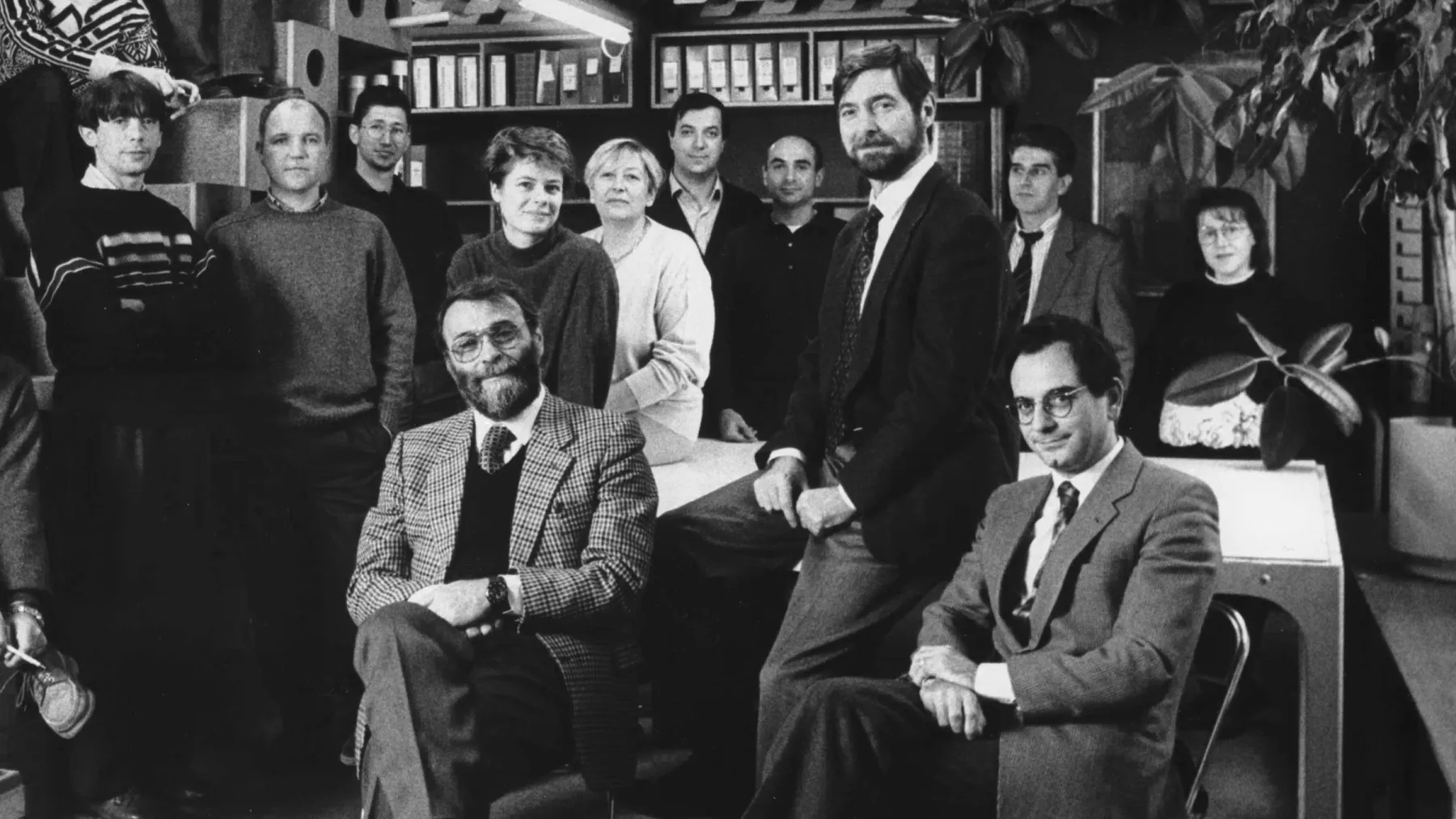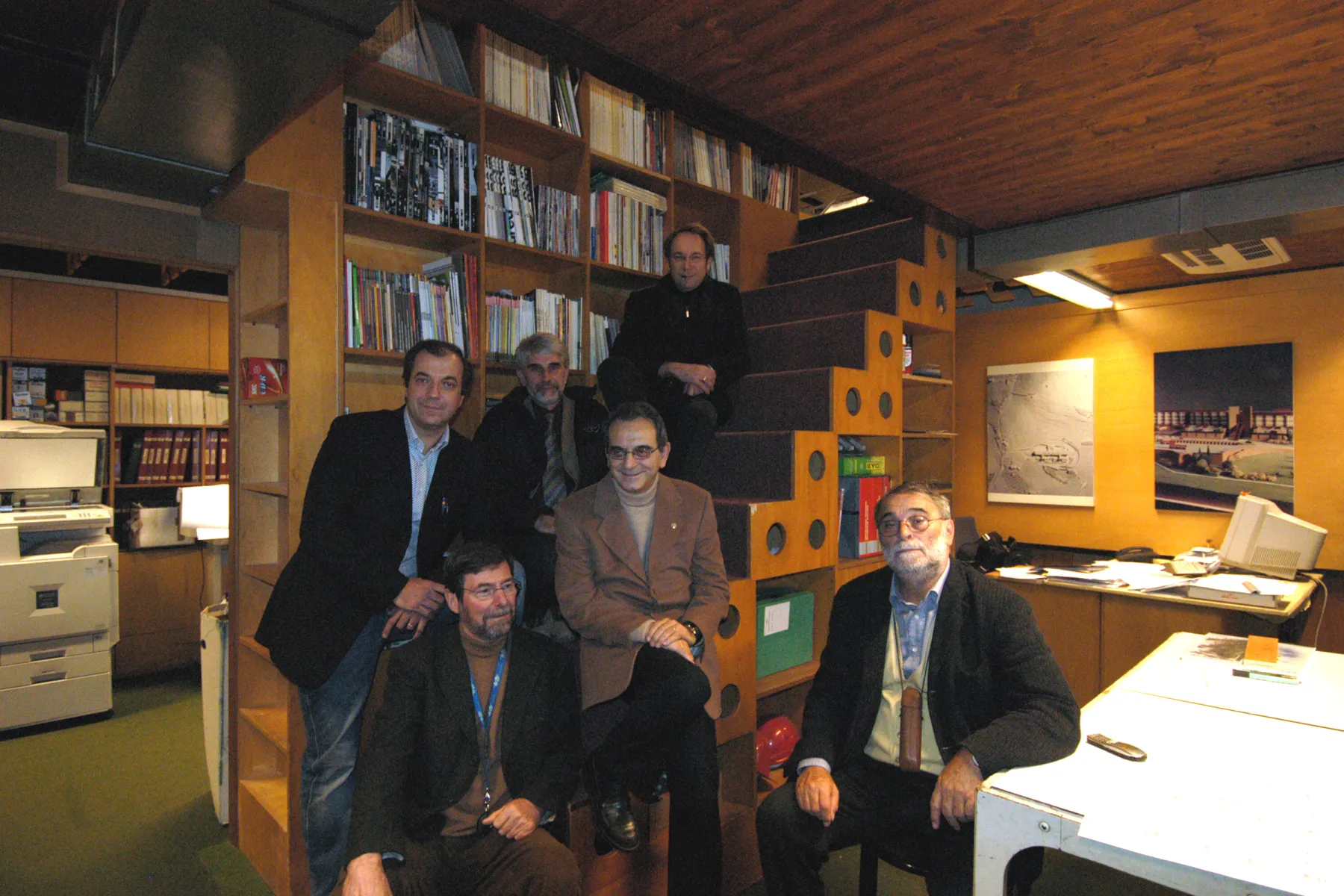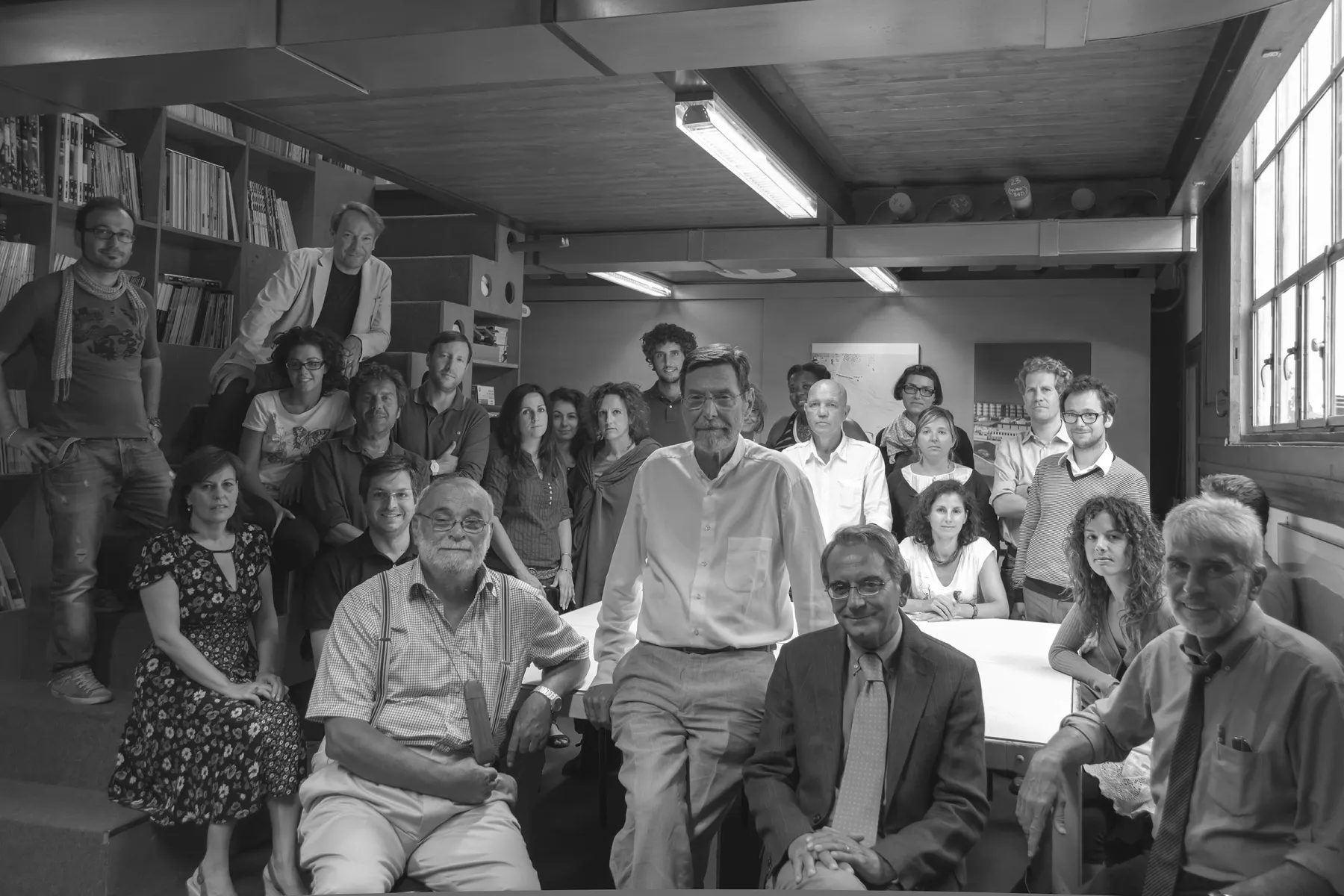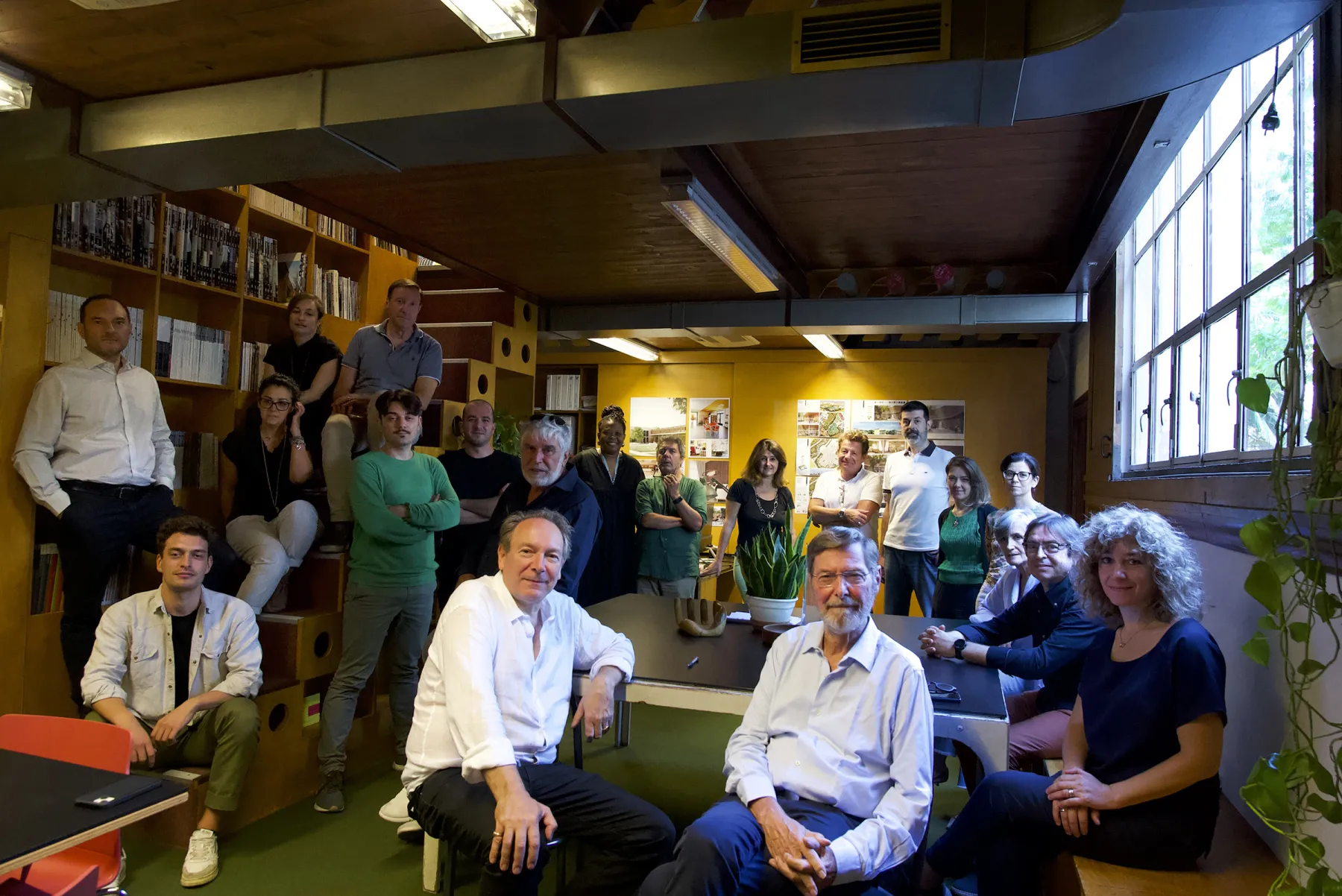HISTORY

+150
Completed projects
49
Years of activity
+20000
Beds
1286000
M2 of projects
The Building Design Study Center –CSPE is a professional studio, founded by Paolo Felli, Antonio Andreucci, and Romano Del Nord, in 1975 in Florence for the development of research, studies, planning and consultancy in the sector of healthcare and civic interventions.
Prof. Arch. Paolo Felli
Member of national and international associations such as: the Academy of Design Arts of Florence, the Public Health Group PHG/UIA, the inter-university research center TESIS, the Italian Society of Hospital Technology (SITO), the International Academy of Design and Health, Past President and Honorary Member of the Italian Society of Architectural Technology (SITdA).
Responsible for research of international importance, he has published articles, essays and manuals on material technologies and healthcare construction, including: The Maternity House: Guidelines for Design, ETS, Pisa, 2006; Valdichiana United Hospitals in Montepulciano. The Single Hospital, Alinea Ed., Florence 2003; Torricelli M.C., Del Nord R., Felli P., Materials and Technologies for Architecture, Ed. Laterza, Rome, 2000.
The academic endevors takes place in parallel with the professional one begun by collaborating with Pierluigi Spadolini on some significant projects, including: the Cassa di Risparmio di Pisa (1968), the Palazzo dei Congressi in Florence (1971), the restoration of the historic headquarters of Monte of the Paschi di Siena (1972). The work with a master like Pierluigi Spadolini will establish a design methodology that will transform into a legacy aimed at enhancing the social and human etymology of architecture and demonstrating the importance of technology within the culture of design. A culture that adopts research as a tool for interpreting reality and generating an architecture that expresses, as Paolo Felli recalls in many conferences, "the interest in continuously evolving material culture, opening up every area of intervention to design investigation, without prejudice to scale: from the architecture, to the system, to the component”.
Prof. Arch. Paolo Felli
Member of national and international associations such as: the Academy of Design Arts of Florence, the Public Health Group PHG/UIA, the inter-university research center TESIS, the Italian Society of Hospital Technology (SITO), the International Academy of Design and Health, Past President and Honorary Member of the Italian Society of Architectural Technology (SITdA).
Responsible for research of international importance, he has published articles, essays and manuals on material technologies and healthcare construction, including: The Maternity House: Guidelines for Design, ETS, Pisa, 2006; Valdichiana United Hospitals in Montepulciano. The Single Hospital, Alinea Ed., Florence 2003; Torricelli M.C., Del Nord R., Felli P., Materials and Technologies for Architecture, Ed. Laterza, Rome, 2000.
The academic endevors takes place in parallel with the professional one begun by collaborating with Pierluigi Spadolini on some significant projects, including: the Cassa di Risparmio di Pisa (1968), the Palazzo dei Congressi in Florence (1971), the restoration of the historic headquarters of Monte of the Paschi di Siena (1972). The work with a master like Pierluigi Spadolini will establish a design methodology that will transform into a legacy aimed at enhancing the social and human etymology of architecture and demonstrating the importance of technology within the culture of design. A culture that adopts research as a tool for interpreting reality and generating an architecture that expresses, as Paolo Felli recalls in many conferences, "the interest in continuously evolving material culture, opening up every area of intervention to design investigation, without prejudice to scale: from the architecture, to the system, to the component”.
Prof. Arch. Romano Del Nord
healthcare construction to which the Universities of Florence, Milan and Rome “La
Wisdom". He held the position of Pro-Rector for Construction at the University
of Florence.
Among the many positions were the titles of: Coordinator of the Masters of Design and Health and "Safety Management"; President of the Ministerial Commission (MIUR) for the implementation of university residential building interventions; Scientific director of the research agreement between the University of Florence and the Tuscany Region on the design criteria for structures for Alzheimer's patients; Coordinator of the Group for the definition of "standardized costs for hospital construction" for the Public Works Supervisory Authority; Scientific director of the Italian Society of Hospital Technology. National representative in the PHG (Public Health Group) of the UIA.
Participation in the international debate on issues related to technology began in the early Seventies, when the renewal of technique became an incisive cultural phenomenon that led Romano Del Nord to become interested in the management of technological integration in the design of intelligent buildings specifically concerning experiences in America and Japan. Always active in the organization of conference events at an international level, he is the scientific director of the International Academy of Design and Health and of the corresponding conference editorial series, he has published essays, articles and manuals on technological design, including the recent publications: The Environmental Stress in the Pediatric Hospital Design, Motta Ed. Milan, 2006; The Building Plan of the Florentine University, Florence, 2005; Architecture for Alzheimer Disease, Alinea Editrice, Florence 2004; Torricelli M.C., Del Nord R., Felli P., Materials and Technologies for Architecture, Ed. Laterza, Rome, 2000.
Prof. Arch. Romano Del Nord
healthcare construction to which the Universities of Florence, Milan and Rome “La
Wisdom". He held the position of Pro-Rector for Construction at the University
of Florence.
Among the many positions were the titles of: Coordinator of the Masters of Design and Health and "Safety Management"; President of the Ministerial Commission (MIUR) for the implementation of university residential building interventions; Scientific director of the research agreement between the University of Florence and the Tuscany Region on the design criteria for structures for Alzheimer's patients; Coordinator of the Group for the definition of "standardized costs for hospital construction" for the Public Works Supervisory Authority; Scientific director of the Italian Society of Hospital Technology. National representative in the PHG (Public Health Group) of the UIA.
Participation in the international debate on issues related to technology began in the early Seventies, when the renewal of technique became an incisive cultural phenomenon that led Romano Del Nord to become interested in the management of technological integration in the design of intelligent buildings specifically concerning experiences in America and Japan. Always active in the organization of conference events at an international level, he is the scientific director of the International Academy of Design and Health and of the corresponding conference editorial series, he has published essays, articles and manuals on technological design, including the recent publications: The Environmental Stress in the Pediatric Hospital Design, Motta Ed. Milan, 2006; The Building Plan of the Florentine University, Florence, 2005; Architecture for Alzheimer Disease, Alinea Editrice, Florence 2004; Torricelli M.C., Del Nord R., Felli P., Materials and Technologies for Architecture, Ed. Laterza, Rome, 2000.
Prof. Arch. Antonio Andreucci
Antonio Andreucci was Full Professor of Architectural Technology at the “Pierluigi Spadolini” Department of Architecture and Design of the University of Florence and member of the Inter-university Research Center on Systems and Technologies for Healthcare Buildings TESIS. Over the years he has been involved in the design and construction of important complex socio-health projects, including: the Riuntiti Hospitals of Valdichiana, the General Hospital of Baggiovara (Modena), the San Giovanni Battista in Foligno, and the Meyer Pediatric Center in Florence to name a few.
The continuous design research is linked to the culture of the places and territory of Emilia Romagna where Andreucci led the creation of works, such as the pioneering AMGA headquarters and the most recent factory of the PARESA company. Alongside his academic and professional activity, he has added his pictorial experience with a production of pastel paintings, in which the atmosphere of the landscapes of the Tuscan and Emilian countryside comes to life. The incredible sensitivity for the pictorial transposition of lights and colors of the natural environment is forcefully found in the approach to architectural themes: from morphological choices, to environmental insertion, but above all in the treatment of materials and their textures which are enhanced from the material and chromatic juxtapositions recurring in the many works created.
Prof. Arch. Antonio Andreucci
Antonio Andreucci was Full Professor of Architectural Technology at the “Pierluigi Spadolini” Department of Architecture and Design of the University of Florence and member of the Inter-university Research Center on Systems and Technologies for Healthcare Buildings TESIS. Over the years he has been involved in the design and construction of important complex socio-health projects, including: the Riuntiti Hospitals of Valdichiana, the General Hospital of Baggiovara (Modena), the San Giovanni Battista in Foligno, and the Meyer Pediatric Center in Florence to name a few.
The continuous design research is linked to the culture of the places and territory of Emilia Romagna where Andreucci led the creation of works, such as the pioneering AMGA headquarters and the most recent factory of the PARESA company. Alongside his academic and professional activity, he has added his pictorial experience with a production of pastel paintings, in which the atmosphere of the landscapes of the Tuscan and Emilian countryside comes to life. The incredible sensitivity for the pictorial transposition of lights and colors of the natural environment is forcefully found in the approach to architectural themes: from morphological choices, to environmental insertion, but above all in the treatment of materials and their textures which are enhanced from the material and chromatic juxtapositions recurring in the many works created.



Studio CSPE 2023

